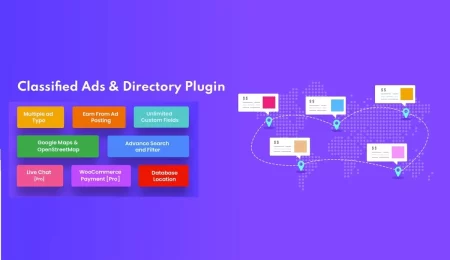Scope of Content Marketing A Strategic Approach
Content marketing is an essential part of any digital marketing strategy, and its scope has expanded significantly over the past few years. This article will provide a comprehensive overview of content marketing, including its definition, benefits, and strategies for successful implementation. We will also explore the importance of content marketing in today’s digital landscape and how businesses can leverage it to grow their brand and drive revenue. We live in a digital age where businesses need to be creative to compete. Traditional marketing tactics are no longer as effective as they once were, and companies must now explore new ways of reaching their audiences. One such strategy is content marketing. In this article, we will explore the scope of content marketing and how it can help businesses grow.
What is Content Marketing?
Content marketing is a strategic approach to creating and distributing valuable, relevant, and consistent content to attract and retain a clearly defined audience – and, ultimately, to drive profitable customer action. It is a long-term marketing strategy that is focused on building a strong relationship with your audience by providing them with high-quality content that is relevant to their needs and interests. Content marketing is a strategy that involves creating and sharing valuable, relevant, and consistent content to attract and retain a specific target audience. The primary goal of content marketing is to drive profitable customer action. Rather than overtly promoting a brand or product, content marketing seeks to inform, educate, and entertain customers to build trust and credibility.
In this article we will discuss:
- Benefits of Content Marketing
- The Scope of Content Marketing
- Successful Content Marketing Strategies
- FAQs
- Conclusion
Benefits of Content Marketing (Scope of Content Marketing)
There are numerous benefits to implementing a successful content marketing strategy. First and foremost, content marketing can help establish your business as a thought leader in your industry. By creating and distributing valuable content, you can demonstrate your expertise and establish trust with your audience.
Content marketing can also help increase brand awareness and visibility. When you create valuable content, people are more likely to share it on social media or recommend it to their friends and colleagues, which can help increase your reach and exposure.
In addition, content marketing can help drive website traffic and improve search engine rankings. When you create high-quality content that is optimized for search engines, it can help improve your website’s visibility in search results, which can drive more traffic to your site.
The Scope of Content Marketing
Content marketing has become an essential aspect of digital marketing, and it can benefit businesses of all sizes and industries. Here are some of the ways content marketing can help companies:
- Builds Brand Awareness Content marketing is an excellent way to build brand awareness. By consistently producing high-quality content, companies can establish themselves as thought leaders in their respective industries. As a result, customers will be more likely to recognize and remember their brand.
- Improves SEO Search engines value high-quality content, and companies that consistently produce relevant, engaging, and informative content will rank higher in search engine results pages (SERPs). By optimizing their content for SEO, businesses can increase their visibility and attract more organic traffic.
- Generates Leads By offering valuable content, companies can attract potential customers who are interested in their products or services. By including a call-to-action (CTA) in their content, businesses can generate leads and increase conversions.
- Increases Engagement Social media platforms have become essential for businesses to reach their audiences. By creating engaging content, companies can increase their social media following and attract more engagement from their customers.
- Builds Trust and Loyalty By consistently producing high-quality content, businesses can establish themselves as thought leaders in their respective industries. This, in turn, will build trust and credibility with their customers, leading to increased loyalty and retention.
Successful Content Marketing Strategies
There are several key strategies for successful content marketing:
- Define your target audience: Before you start creating content, it is essential to understand your target audience’s needs, interests, and pain points. This will help ensure that the content you create is relevant and valuable to them. The first step in creating a successful content marketing strategy is to define your target audience. Who are the people you want to reach with your content? What are their interests, pain points, and needs? By defining your target audience, you can create content that resonates with them and addresses their specific needs.
- Set Your Goals The next step is to set your goals. What do you want to achieve with your content marketing strategy? Do you want to increase brand awareness, generate leads, or drive sales? Your goals will dictate the type of content you create and how you distribute it.
- Conduct a Content Audit Before creating new content, it’s important to take stock of the content you already have. Conduct a content audit to see what content you have, what’s working, and what’s not. This will help you identify gaps in your content and determine what type of content you need to create to achieve your goals.
- Create a content plan: A content plan will help you stay organized and ensure that you are consistently producing high-quality content. Your plan should include a content calendar, topics, and a distribution strategy.Based on your target audience, goals, and content audit, develop a content plan. This plan should include the types of content you will create, the topics you will cover, and the channels you will use to distribute your content.
- Create valuable content: The content you create should be valuable, informative, and relevant to your target audience. It should provide them with actionable insights, tips, or advice that they can use in their daily lives or work.With your content plan in place, it’s time to start creating your content. Make sure your content is valuable, informative, and engaging. Use visuals, such as images and videos, to make your content more appealing.
- Optimize for search engines: Your content should be optimized for search engines to ensure that it ranks well in search results. This includes using keywords, optimizing your headlines and meta descriptions, and creating high-quality content that provides value to your audience.
- Distribute your content: Once you have created your content, you need to distribute it effectively. This includes sharing it on social media, promoting it through email marketing, and leveraging other channels to reach your target audience. Once you have created your content, it’s time to distribute it. Use social media, email marketing, and other channels to share your content with your target audience. Make sure your content is optimized for search engines to maximize its reach.
- Measure Your Results The final step in creating a successful content marketing strategy is to measure your results. Use analytics tools to track your content’s performance and see how it’s contributing to your overall goals. Use this data to refine your content strategy and improve your results over time.
FAQs
- What exactly is content marketing? Content marketing is a strategic approach that involves creating and distributing valuable, relevant, and consistent content to attract and retain a clearly defined audience – with the ultimate goal of driving profitable customer action.
- Why is content marketing important? Content marketing is important because it helps businesses establish themselves as thought leaders in their industry, build trust with their audience, and drive traffic and leads. It also allows companies to engage with their customers on a deeper level and create a stronger brand identity.
- What are some common types of content used in content marketing? Common types of content used in content marketing include blog posts, videos, social media posts, eBooks, infographics, podcasts, and webinars.
- How do you measure the success of a content marketing strategy? The success of a content marketing strategy can be measured through various metrics, such as website traffic, engagement rates, lead generation, and conversion rates. It is important to set clear goals and KPIs (key performance indicators) from the outset to track progress and make data-driven decisions.
- What are some best practices for creating a successful content marketing strategy? Some best practices for creating a successful content marketing strategy include: defining your target audience, creating a content calendar, producing high-quality content that aligns with your brand values, promoting your content through various channels, and analyzing your results to continuously improve your strategy.
Conclusion
In conclusion, content marketing has become an essential component of modern marketing strategies. Its scope is vast and continues to evolve as new technologies and platforms emerge. By providing valuable and engaging content to their audience, businesses can establish themselves as thought leaders, build brand awareness, and drive traffic and leads. However, it is important to note that content marketing is not a one-size-fits-all approach and requires careful planning and execution to be successful. By following best practices and continually analyzing and adjusting their strategies, companies can reap the many benefits of content marketing and stay ahead of the curve in an ever-changing digital landscape.
Photo by fauxels




Leave a Comment